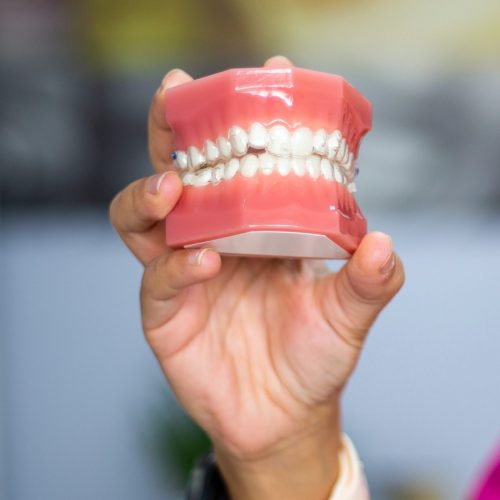5 Ways To Keep Your Mouth Healthy
Brushing your teeth is an essential part of oral health but it is not the only part of keeping your mouth healthy. Having bad dental hygiene can be more than just irritating, it can lead to some serious health problems such as gum disease, tooth decay, infections and oral cancer. However, it can also affect your mental health and self-esteem if you are unhappy in the way you look when you smile or feel that you have bad breath. There many reasons you should be conscious of your oral health. Here are some tips to ensure you maintain your oral health.
- Use Proper Technique When You Brush
Most people know that they should brush their teeth twice a day but even if you’re brushing twice a day, if you aren’t using the proper technique it might not be doing that much good for your mouth. A quick brush that doesn’t focus on the entirety of your mouth, including your teeth, gums and tongue, is not going to be effective at getting rid of leftover food and bacteria. Ensure that you are thoroughly brushing your mouth including the surfaces of your teeth, the root of your teeth near your gum line, the roof of your mouth and your tongue. Many people neglect brushing their tongue but it is a magnet for bacteria due to being covered in small bumps called papillae. Food particles, bacteria and dead skin cells can get caught in between these small bumps and cause bad breath as well as increasing plaque and tartar buildup. When brushing, brush gently back and forth with the brush at a 45-degree angle for optimal coverage. Use a soft-bristled brush and brush back and forth gently, with the brush at 45-degree angle near the gum line. Make sure to brush your teeth for at least two minutes, morning and night.
- Don’t Forget To Floss
Flossing is often the part of people’s dental hygiene routine that they think is optional, or the part they are most likely to forget about. However, flossing has a different function to brushing but it is just as important. This is because flossing is a way of reaching that food debris and bacteria that your toothbrush can’t. If food debris and plaque stays trapped between your teeth it can lead to a buildup of plaque that generates acid and causes cavities and gum problems. You should floss every time you brush your teeth and after meals, if you can remember. There are different flosses for different teeth types but you should try to use a piece of floss about 45cm long so that you can use a clean piece of floss between each tooth. Just make sure not to floss too aggressively as this can irritate or cut into your gums.
- Eat A Healthy, Balanced Diet
What we put into our mouths has an impact on our oral health and for that reason, it is essential that you maintain a healthy, balanced diet if you want to have good dental hygiene. A nutritious diet that is high in calcium-rich foods and low in sugary, processed foods will lead to healthier teeth and gums. Vitamin D, Vitamin B, copper, iron, potassium and zinc are other minerals and vitamins that promote good oral health. Leafy greens, dairy products and oily fish and high in calcium and other minerals. Regular consumption of sugary foods and drinks can increase your risks of cavities because in order for your mouth to break down the sugar it produces an acid that can dissolve tooth enamel. Tooth enamel cannot be repaired once damaged so eating a lot of sugary foods can eventually lead to tooth decay.
- Visit The Dentist Regularly
Even if you brush and floss regularly and eat healthily, it doesn’t mean that you should skip seeing the dentist. Regular visits to the dentist is an essential part of good oral health because there are many oral health issues that only a professional will be able to identify and help you with. Seeing your dentist regularly can help you stay on top of any dental issues and make sure that your teeth are thoroughly and properly cleaned. Remember the prevention is better than cure and seeing a professional every couple of months will help to ensure you don’t get any diseases or infections that will cause you more pain.
- Drink Tap Water
It is important for our health to stay hydrated but drinking tap water can be particularly beneficial for our oral health. This is because tap water, as opposed to bottled water, is high in fluoride. Fluoride is a mineral that strengthens enamel, prevents cavities and promotes remineralisation, which can help to repair the early stages of tooth decay. For this reason, drinking tap water is a cheap and easy way to have access to nature’s cavity fighter!
7 Ways to Whiten Your Teeth How To Keep Your Child’s Teeth Healthy
Latest from the Dental Blog
 22 Feb 2021
22 Feb 2021
What is Orthodontics?
If you’ve heard the term ‘orthodontics,’ then there’s a good chance you’re like most people in that you don’t know…
 20 Oct 2022
20 Oct 2022
Whitening with Braces: What to Consider
Braces are the tried and true method to solve many orthodontic and cosmetic issues. This is achieved through constant pressure…
 04 Oct 2017
04 Oct 2017
Dental Care for Babies and Young Children
Despite being temporary, a child’s first teeth are just as important as their permanent teeth later on. Primary or baby…
